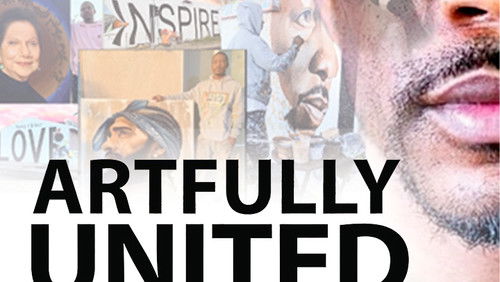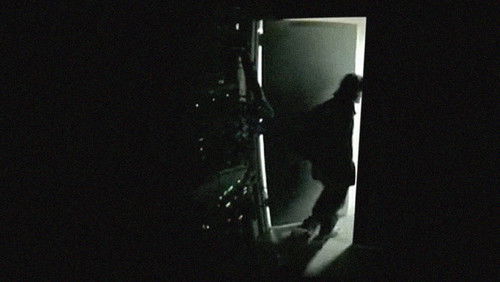Robinson in Ruins (2010)
6KRobinson in Ruins (2010). 1h 41m
“Robinson in Ruins completes a trilogy of films starting with London and Robinson in Space, concerning the wanderings and investigations of an eccentric named Robinson (Keiller by proxy). Here Robinson visits sites of historic and scientific curiosity in the British countryside in the hope of uncovering the roots of what he would see as the crisis of Late Capitalism (a pregnant term originating from Marxist theory), though this term isnu0026#39;t specifically mentioned in the film.u003cbr/u003eu003cbr/u003eAs a collection of arcane information, and as a travelogue, Robinson in Ruins works very well; as a political treatise itu0026#39;s rather impressive by virtue of its obscure texts, and has itu0026#39;s heart in the right place but in the end is quite sophistical, overly sentimental and lacking in central coherence. As someone who enjoyed the tranquillity of watching foxgloves pitch in the wind as a child, Patrick Keiller did push my buttons with extended shots of such things (although they werenu0026#39;t always in keeping with the pacing of the film). u003cbr/u003eu003cbr/u003eRobinson enjoys talks about the biological phenomenon of mutualism, an example being lichen, where a fungus and a cyanobacterium (or an alga), combine synergistically to form one organism. He talks about the ramifications of mutualism, and mentions how he believes that people should self-organise according to this type of behaviour, crafting objects and social systems that are biomorphic. This is a sociological extension of scientific theory for which he brings into play the ideas of Lynn Margulis and her counter-position to neo-Darwinism, u0026quot;life did not take over the globe by combat, but by networkingu0026quot; (as Manichaean and absurd a proposition as the neo-Darwinian opposite). Michael Polanyi, and Thomas Kuhn both pointed out that science was a relativistic discipline due to the subjective dispositions of the practitioners; you often build on sand therefore when you form social policy by extrapolating from ersatz-concrete scientific concepts (e.g. eugenics). In any event you can actually reverse Robinsonu0026#39;s fairly eyebrow-raising argument, and argue that capitalism itself is actually quite like mutualism, with just as much grounds. u003cbr/u003eu003cbr/u003eElsewhere in the film Michaelu0026#39;s brother Karl Polanyiu0026#39;s work, u0026quot;The Great Transformationu0026quot; forms the main reading, in which he argued that the enclosure in England in the 19th century is the forerunner of all the evils of market capitalism. Enclosure was a process whereby the rights of common people to use common lands were taken away, and land fenced off.u003cbr/u003eu003cbr/u003eI would say that Keiller probably doesnu0026#39;t have a requisite grasp of the economics that he introduces in this film. The timeline of events that is narrated over a picture of a spider spinning a web is only a very superficial sketching out of the late-2000s financial crisis (my job involves explaining such things to professional clients). After the screening I attended, Keiller referred to a u0026quot;stock market crashu0026quot; caused by Jérôme Kerviel (actually a u0026quot;rogue traderu0026quot; causing losses in one company), which did nothing to alleviate my feeling. u003cbr/u003eu003cbr/u003eThere are other annoyances in the film, such as the credits, which are enough to make an amateur blush. Thereu0026#39;s also an exasperating party political chauvinism, odd to find in modern art where practitioners are generally aware of its lack of integrity and propensity to go stale. Itu0026#39;s almost understandable in London, which was made during the last years of the, by then, extremely unpopular Conservative government. But in this film, made in 2008, at the height of an extremely unpopular Labour government, he gives Gordon Brown and his party a wide berth, despite the fact that they presided over the problems that he gives epic vent to in this film, not only that but he carries on Tory-bashing, despite the fact that the Conservatives had been out of power for a decade when this film was made. From the extreme left-wing viewpoint of Robinson/Keiller, integrity would seem to indicate that he would see them as two heads of the same Hydra, but itu0026#39;s clear Keiller is a factionalist.u003cbr/u003eu003cbr/u003eIn the Qu0026amp;A he mentioned that Witney (which appears in the film) is David Cameronu0026#39;s constituency, with a bizarre and groundless gravitas. Keiller has a tendency of drawing together tenuous pieces of information and implying some sort of deadly conspiratorial link, for example linking in the film, by innuendo only, the price of corn futures to missile tests in Iran, pure balderdash!u003cbr/u003eu003cbr/u003eKnowledge of botany is a good background for the movie, for example when the narration turns to corn prices initially Keiller shows an arum lily complete with spathe and spadix, and some time later when the price narrative is really rocketing around we get the same plant a season later, rudely and unrecognisably flaunting its poisonous bright red fruit spike. Itu0026#39;s nice, although I think the corn story didnu0026#39;t get to a point, quite like his performance in the Qu0026amp;A where I donu0026#39;t think Keiller managed to answer a single question straight and rambled off into quite the most absurd digressions. By the way, it seems particularly perverse that people almost never appear in this really very cold film (cue sophistical digression when asked why people didnu0026#39;t appear in a film about social history).u003cbr/u003eu003cbr/u003eThe movieu0026#39;s substantial polemical point is that the United States has a bizarre foothold in the UK, in terms of military bases, which is a relic, as Keiller mentioned in the Qu0026amp;A (but not in the film) of the American-led World War II invasion of France. Bureaucracies tend to hang on to what theyu0026#39;re given even after the original purpose has elapsed! He also suggests that capitalism is not the only way of organising human endeavour, and that market forces are causing the collapse of the global ecosystem and valuable cultural identity, which may well be true. I have some sympathy with these positions and found the movie mostly beautiful, however if someone were to call Keiller a charlatan, and a pedant, Iu0026#39;d have precious little ammunition to rise to his defence with.”









